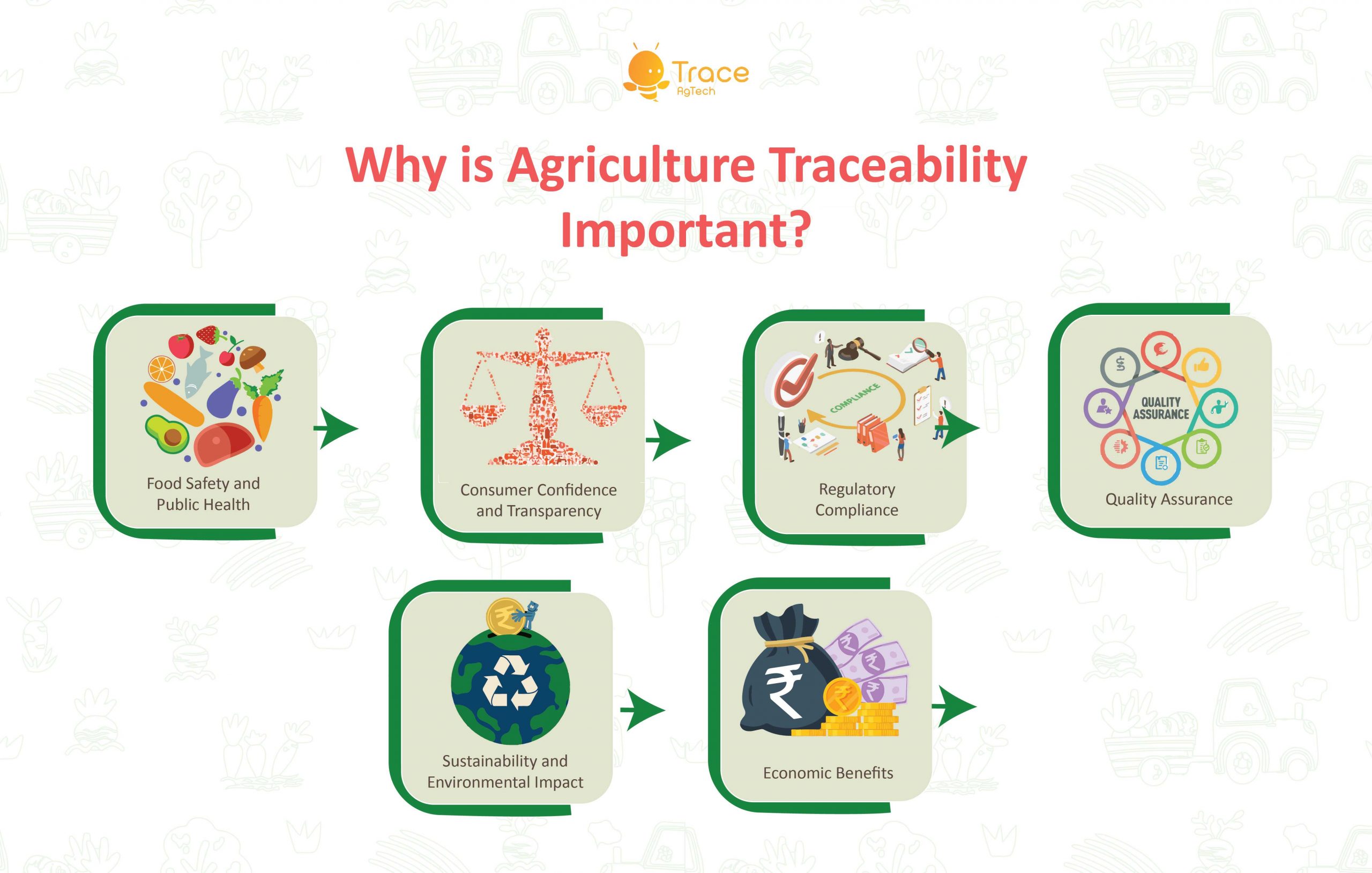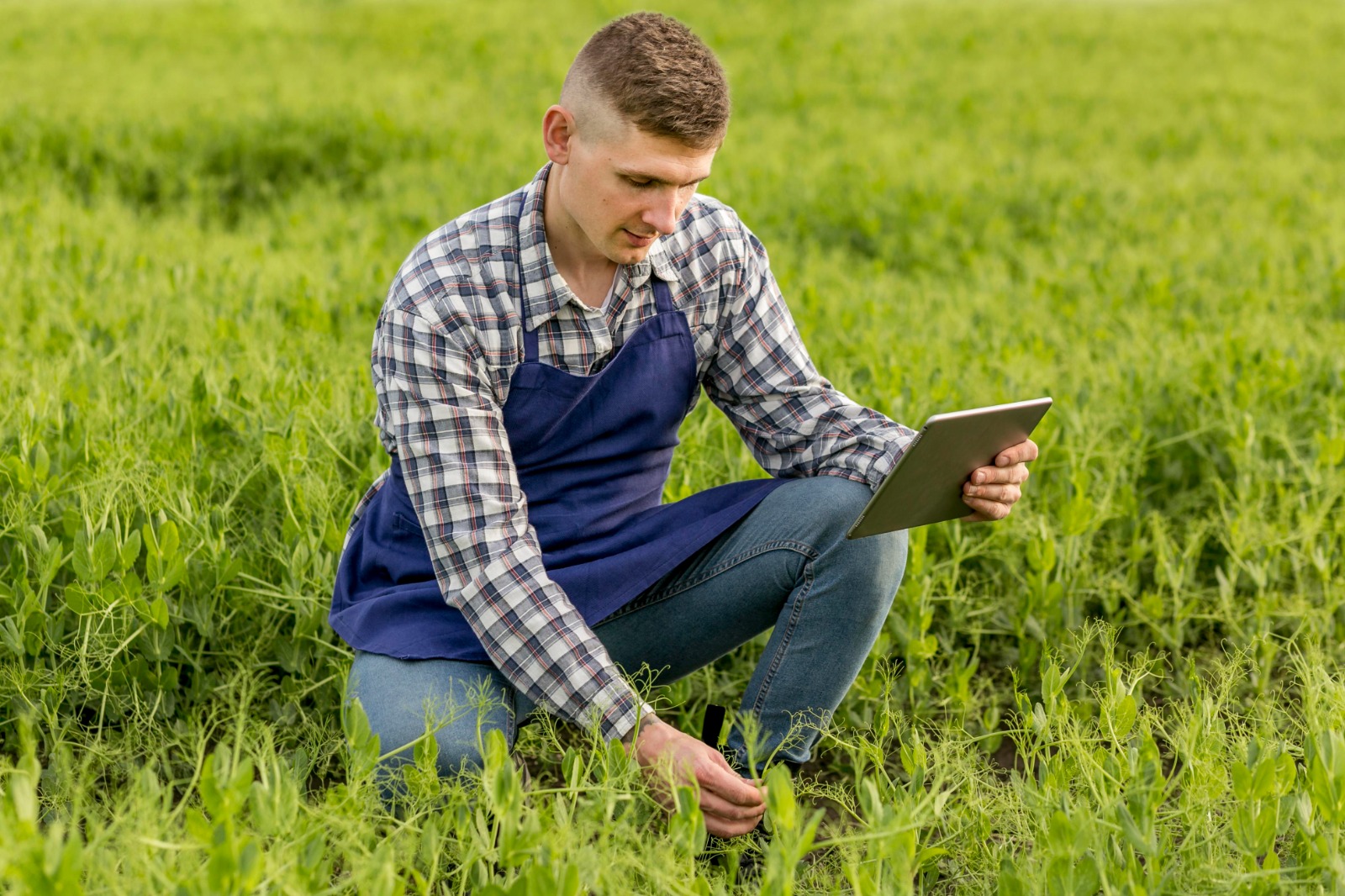Agriculture Traceability: The Importance and Growing Demand
Agriculture Traceability is important in today’s interconnected world as the food we consume often travels thousands of miles before it reaches our plates. With this vast network of production, processing, and distribution, ensuring the safety and quality of agricultural products has become increasingly complex. This is where agricultural traceability comes into play, offering a solution to track the journey of food from farm to fork. The importance and demand for agricultural traceability are rising, driven by several key factors that benefit consumers, producers, and the environment.
What is Agriculture Traceability?
Agricultural traceability refers to the ability to track the history, application, and location of agricultural products. It involves recording and managing information about the entire lifecycle of a product, from the origin of raw materials to the final consumer. This process can include data on the methods of cultivation, harvest dates, processing techniques, storage conditions, and transportation routes.
Why is Agriculture Traceability Important?
-
Food Safety and Public Health
Agricultural traceability is crucial in ensuring food safety. In the event of a foodborne illness outbreak, traceability systems enable rapid identification and removal of contaminated products from the supply chain, thereby minimizing the risk to public health. By tracing the source of contamination, authorities can implement targeted recalls and prevent further incidents.
-
Consumer Confidence and Transparency
Today’s consumers are more informed and conscientious about the origins of their food. They demand transparency in agriculture and regarding how their food is produced, processed, and delivered. Traceability systems in agriculture provide this transparency, allowing consumers to make informed choices and trust the quality and safety of the products they purchase.
-
Regulatory Compliance
Governments and regulatory bodies around the world are implementing stricter food safety regulations. Compliance with these regulations often requires robust traceability systems. For producers and exporters, having a traceability system in place is essential to meet legal requirements and maintain access to international markets.

-
Quality Assurance
Traceability enhances quality control throughout the supply chain. By tracking and documenting each stage of production and handling, producers can identify and address issues that may affect product quality. This leads to more consistent and higher-quality products, ultimately benefiting both producers and consumers.
-
Sustainability and Environmental Impact
Traceability supports sustainable agricultural practices by providing detailed records of production methods and inputs. This information can be used to promote environmentally friendly practices, reduce waste, and improve resource management. Consumers are increasingly seeking sustainably produced food, and traceability helps meet this demand by verifying sustainable practices.
-
Economic Benefits
For producers, traceability can lead to economic benefits by enhancing brand reputation and consumer loyalty. It can also open up new market opportunities, particularly in regions with stringent food safety and quality standards. Additionally, traceability can reduce costs associated with recalls and foodborne illness outbreaks by enabling faster and more targeted responses.
The Growing Demand for Agriculture Traceability
Several factors are driving the increasing demand for agricultural traceability:
-
Consumer Trends
As consumers become more health-conscious and environmentally aware, they seek greater assurance about the origins and safety of their food. This demand for transparency is pushing companies to adopt traceability systems.
-
Technological Advancements
Innovations in technology, such as blockchain, IoT, and data analytics, are making traceability more accessible and cost-effective. These technologies enable real-time tracking and provide a tamper-proof record of the product’s journey.
-
Globalization of Food Supply Chains
The globalization of food supply chains has increased the complexity of tracking products. Traceability systems help manage this complexity by providing a comprehensive view of the entire supply chain, from local farms to international markets.
-
Regulatory Pressure
Governments are implementing more rigorous food safety regulations, making traceability a mandatory requirement for compliance. This is particularly relevant for exporters who must meet the standards of multiple countries.
-
Food Fraud Prevention
Traceability helps combat food fraud, which includes practices such as mislabeling, adulteration, and counterfeiting. By ensuring the authenticity and integrity of products, traceability protects consumers and maintains market trust.
Conclusion
Agricultural traceability is no longer a luxury but a necessity in the modern food system. It ensures food safety, builds consumer trust, supports regulatory compliance, enhances product quality, promotes sustainability, and offers economic benefits. As the demand for transparency and accountability in food production continues to grow, investing in robust traceability systems will be crucial for the future of agriculture. Producers, regulators, and consumers alike stand to gain from the widespread adoption of traceability, making it a cornerstone of a safe, sustainable, and resilient food supply chain.


Any comments?